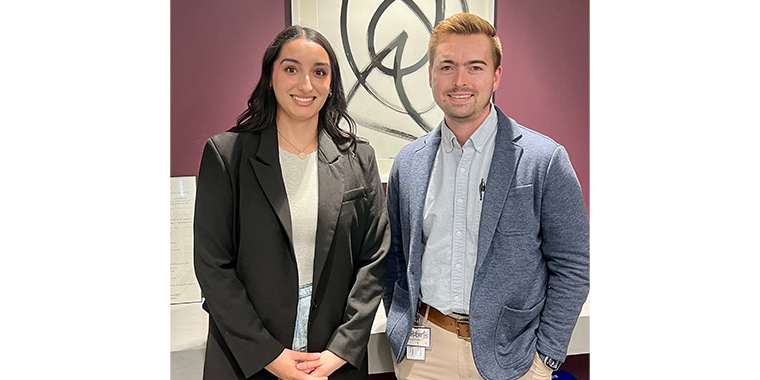Kansas City University (KCU) and Kansas City Public Schools (KCPS) have partnered through the Center for Population Health and Equity (CPHE) to provide psychological services and support mental health needs in KCPS elementary schools. Guided by assistant professor and clinical supervisor, Alex Roberts, PhD, this collaboration not only enhances students’ educational experience but also offers invaluable training to the next generation of clinical psychologists.
Empowering future clinicians through community-based training
KCU students gain hands-on experience through practicum placements, conducting psychoeducational assessments and interventions while collaborating with educators. This addresses the immediate psychological needs of underserved children while fostering essential clinical skills in future psychologists.
"School systems are complex, so at CPHE, we focus on quickly addressing KCPS students' needs,” Roberts said. “We want to ensure students aren’t waiting for testing to determine what kind of services they need. KCU students are learning to advocate for students in ways that don’t always show up on paper, and this allows them to meet students’ needs faster and more effectively."
In doing so, students develop critical clinical skills, including communication, empathy and collaboration, all while gaining hands-on experience in the community. Developing these skills proves essential when confronting challenges like language barriers, special education needs and cultural differences —issues KCPS often face.
For Analyssa Escudero, a third-year clinical psychology student, working with English language learners and children from refugee backgrounds has revealed the complexity of student needs. “It's not just about providing support; it's about adapting to a system that may feel foreign to them, and ensuring they get the mental health services and accommodations they deserve,’ she says."
Scaling up mental health support
As the partnership between KCU and KCPS evolves, the program is expanding to meet the growing mental health needs of KCPS students. Currently, five practicum students are placed across multiple schools, providing vital support. Looking ahead, four full-time practicum students will dedicate two to three days a week to their placements in the upcoming academic year, allowing for more comprehensive involvement. Additionally, KCU is exploring peripheral placements, where more students could contribute one day a week to the program, further enhancing support for KCPS students.
“We aim to increase equitable access to psychoeducational testing for KCPS students,” Roberts explains. “By reducing wait times for testing and services, we ensure students get the support they need quickly, which is crucial in a district where over 20 languages are spoken and a diverse range of needs exist.”
As the collaboration between KCU and KCPS strengthens, the focus remains on both the quality and accessibility of mental health services for students. Through this partnership, KCU aims to train the next generation of clinical psychologists while making a meaningful, lasting impact on the community.




(0) Comments